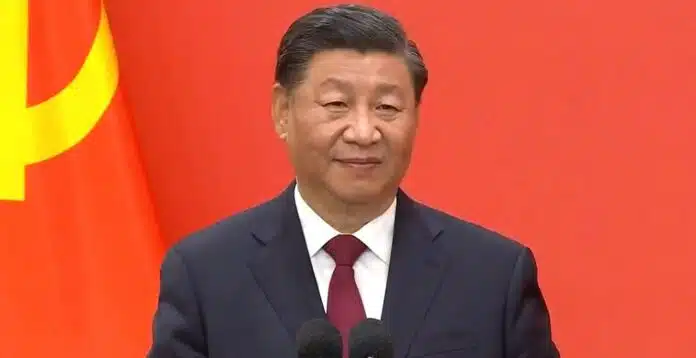Beijing expands its role in Africa by sharing development strategies and governance insights amidst growing cooperation
China is deepening its engagement with Africa by sharing its development and governance experiences, marking a significant shift in its diplomatic strategy. This move, unveiled during the Forum on China-Africa Cooperation (FOCAC) summit in Beijing, highlights China’s commitment to supporting African nations through a blend of economic aid and political training.
The summit, held on September 5, 2024, showcased President Xi Jinping’s vision for a stronger partnership with Africa. Xi’s speech emphasized China’s aim to foster modernization on the continent by sharing its successful governance practices and development strategies. This includes setting up a platform for governance experience exchange, establishing a China-Africa knowledge network, and creating 25 centres dedicated to China-Africa studies.
Embed from Getty ImagesOne prominent example of China’s influence is the Herbert Chitepo School of Ideology in Zimbabwe. Funded by Chinese contributions, the school recently underwent significant refurbishments and now serves as a hub for political training. It hosts seminars and training sessions for Zimbabwe’s ruling ZANU-PF party and attracts lecturers from China’s Communist Party, illustrating a deepening party-to-party relationship.
China’s support extends to the Mwalimu Julius Nyerere Leadership School in Tanzania, which received US$40 million in funding from Beijing. This institution, modelled after China’s Central Party School, is designed to train leaders from various African nations, including Angola, Mozambique, Namibia, South Africa, Tanzania, and Zimbabwe. It represents China’s broader strategy of nurturing political alliances through educational institutions.
China’s engagement also includes inviting 1,000 members of African political parties to China over the next three years. This initiative aims to provide African leaders with insights into China’s governance model, reflecting Beijing’s interest in sharing its approach to state and party administration.
This proactive approach to governance sharing follows a history of China’s involvement in Africa dating back to the 1960s, when it provided ideological and military support during the continent’s liberation struggles. In recent years, China has shifted its focus from massive infrastructure projects to sectors such as agriculture, manufacturing, green energy, and critical minerals. This strategic pivot underscores China’s intention to play a more nuanced role in Africa’s development.
Analysis:
Political:
China’s efforts to share its governance model with African nations reflect a strategic attempt to influence the political landscape of the continent. By offering its experience and resources, China positions itself as a key partner in Africa’s modernization efforts. This engagement is not merely about economic aid but also involves a transfer of political strategies and governance models. For African countries with a history of single-party rule or authoritarian governance, China’s model may offer a form of stability that aligns with their existing structures. However, this also raises questions about the impact on democratic norms and political pluralism in these nations.
Social:
China’s focus on political training and party-to-party exchanges mirrors its broader strategy of using soft power to influence societal structures in Africa. The refurbished Herbert Chitepo School and the Mwalimu Julius Nyerere Leadership School are emblematic of China’s approach to shaping political ideologies and practices. While these initiatives may bolster political alliances, they also highlight a shift in Africa’s engagement with global powers, moving towards models that emphasize state control and party loyalty. This could affect societal norms, particularly in countries transitioning from single-party rule or grappling with democratic reforms.
Racial:
The racial dynamics of China’s involvement in Africa are complex. On one hand, China’s engagement represents a form of solidarity with African nations, offering support that contrasts with the historically exploitative relationships some African countries have had with Western powers. On the other hand, there is a concern about whether China’s approach will perpetuate existing power structures rather than fostering genuine democratic progress. The emphasis on party-to-party exchanges and political training might reinforce existing racial and political hierarchies rather than challenge them.
Economic:
Economically, China’s strategy of sharing its development experience with Africa aims to enhance economic ties and support modernization efforts. By focusing on sectors such as agriculture, manufacturing, and green energy, China aligns itself with Africa’s growth priorities. However, this approach also carries implications for economic sovereignty. As African nations become more reliant on Chinese models and support, there is a risk that economic policies might skew towards favoring Chinese interests. Additionally, while the emphasis on infrastructure and resource development is beneficial, the impact of political and governance training on economic management and development will need careful monitoring.
